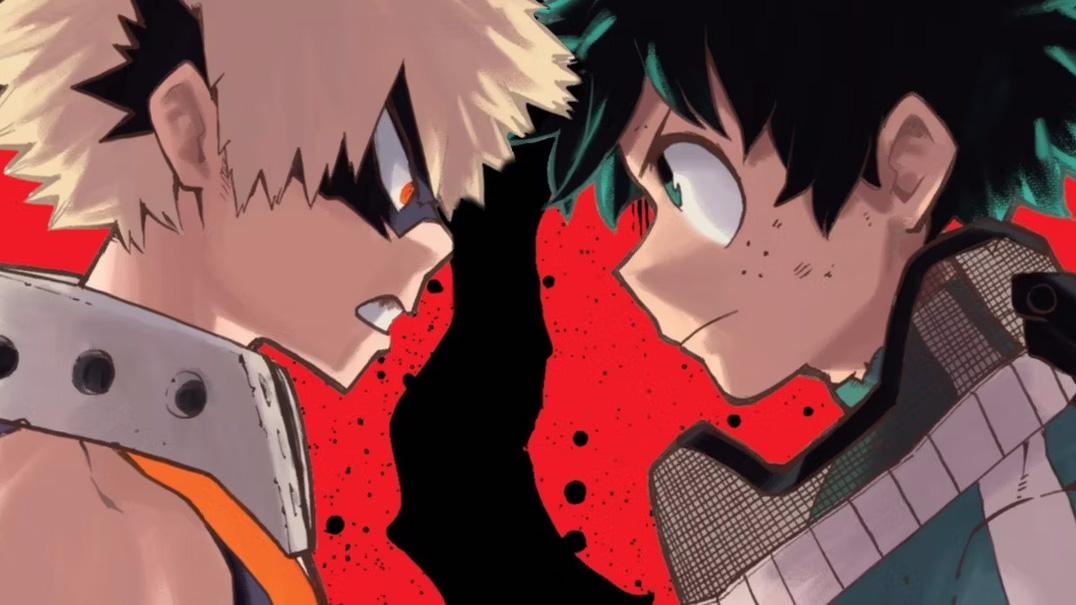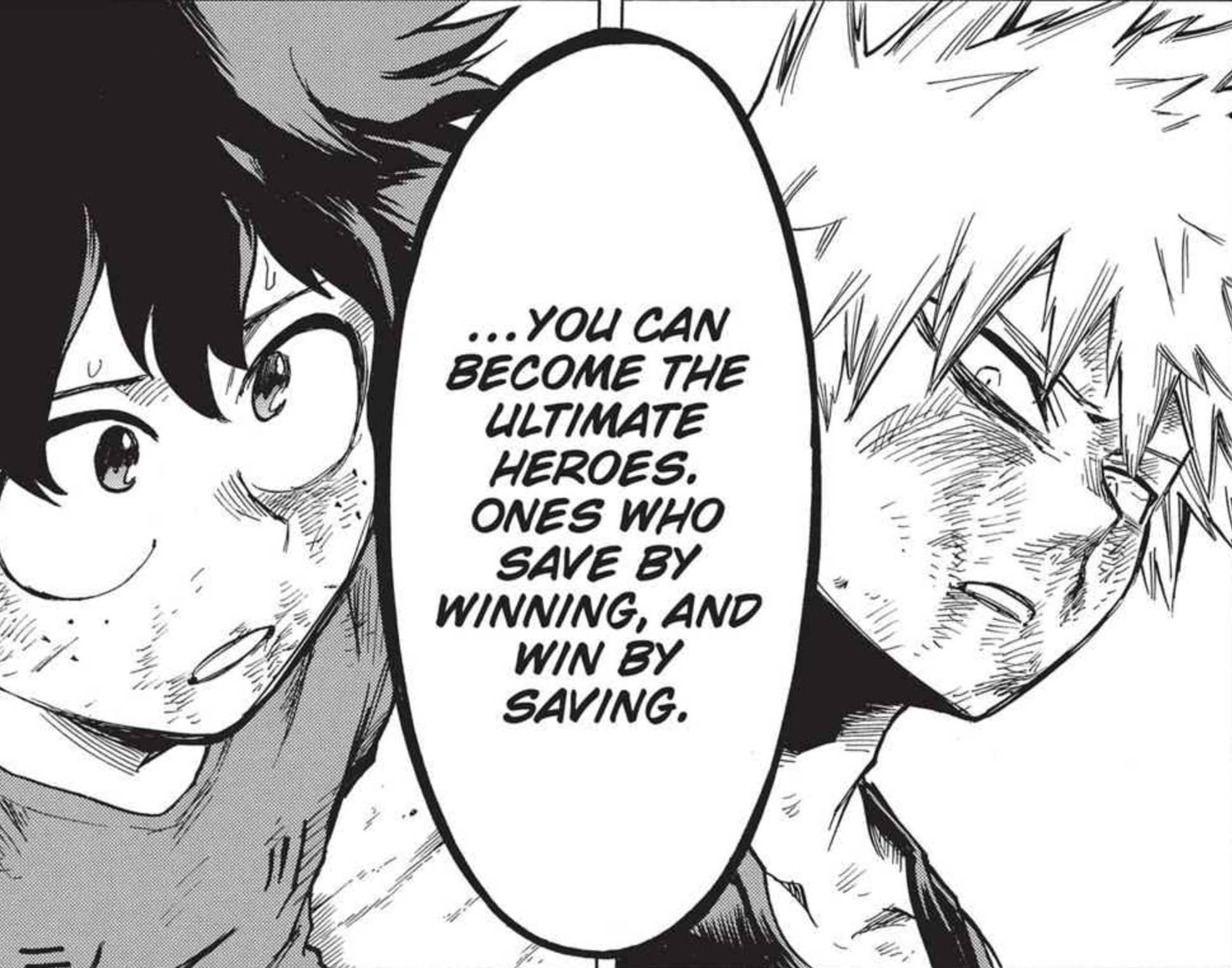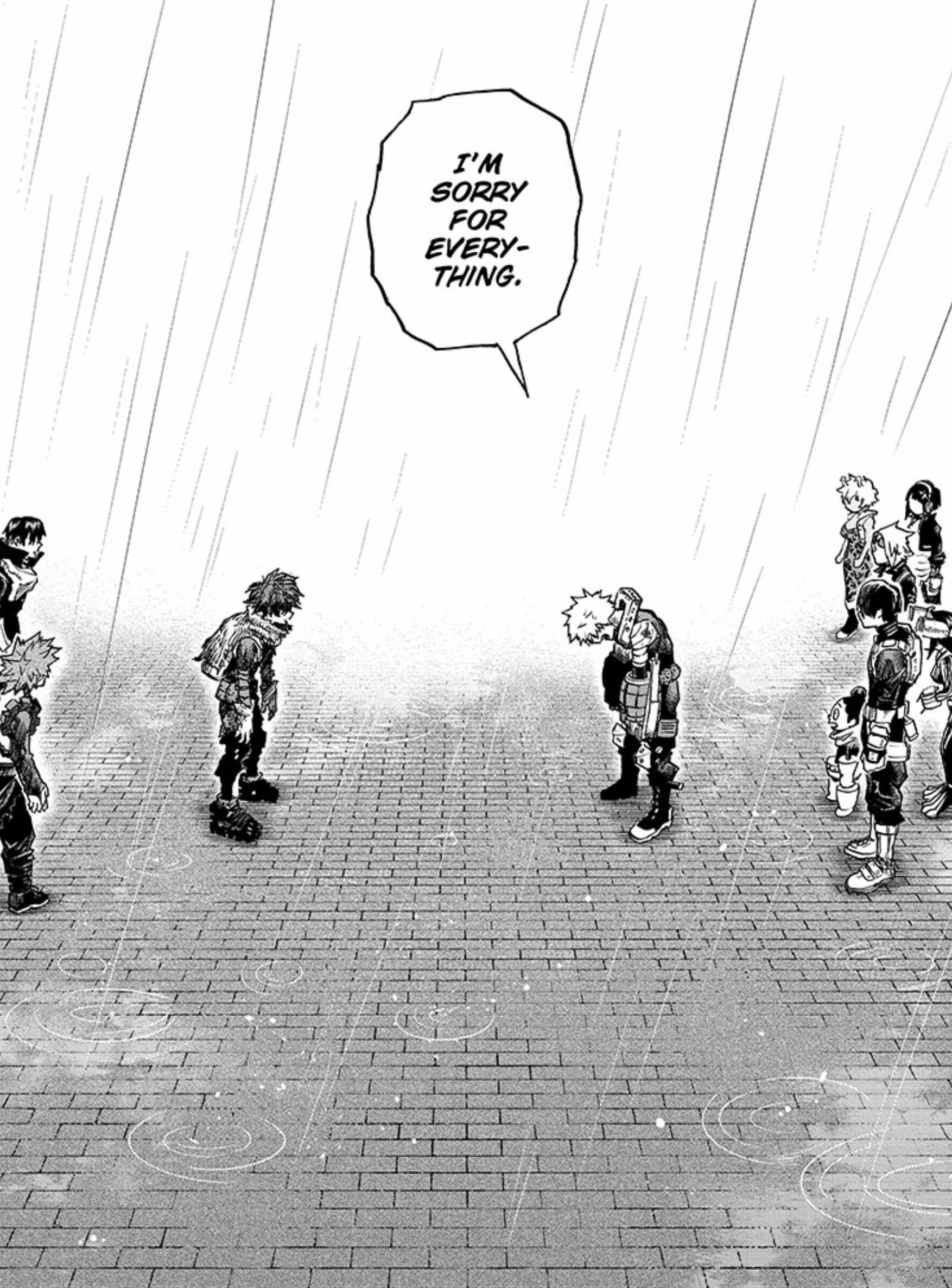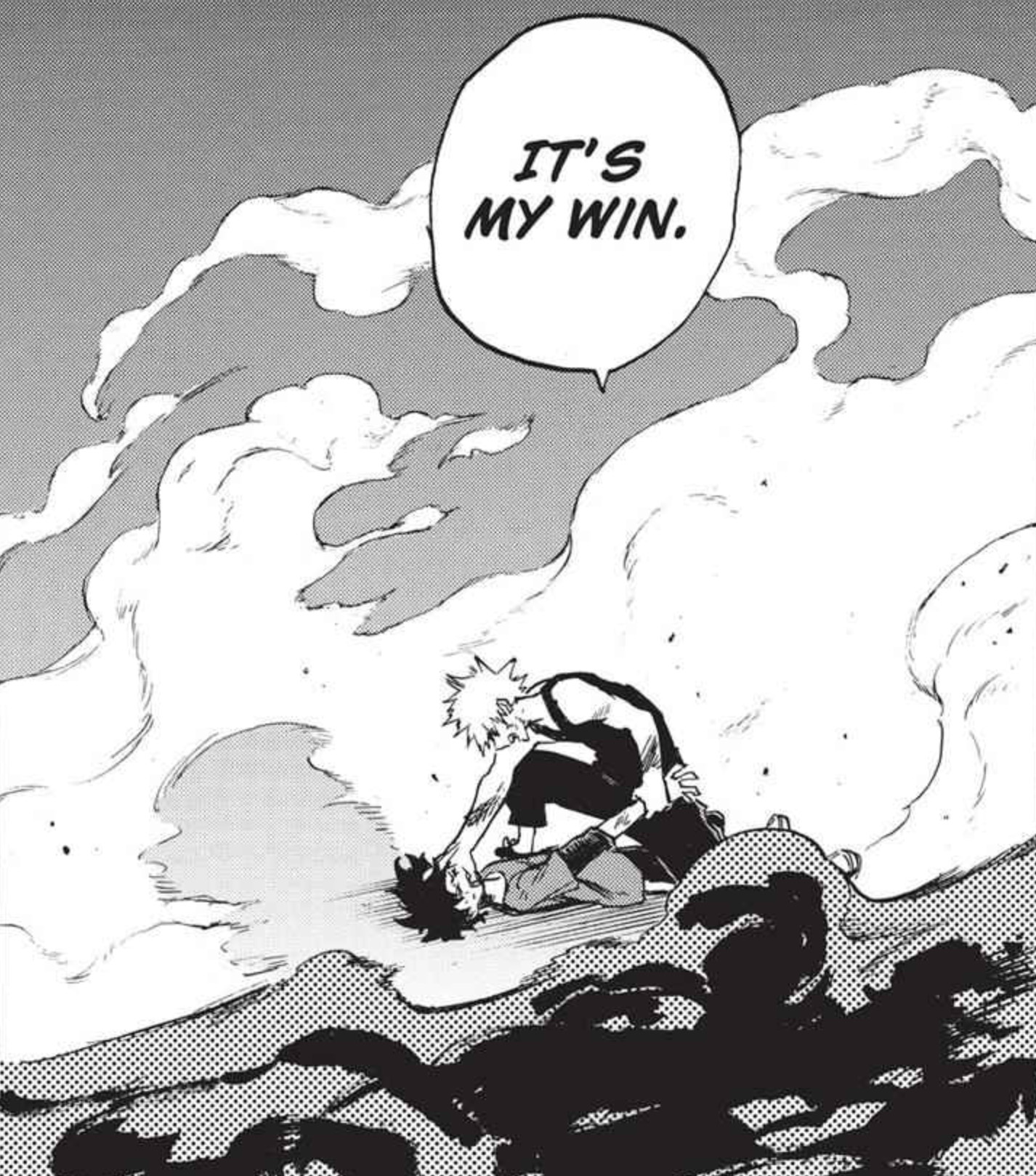
In the superhero genre, the greatest ideological foil or the most prominent rival is typically a villain. Batman's personal tragedy inspired him to adopt a strict moral code, while the Joker's mysterious past pushed him into a cycle of cruelty and anarchy. Spider-Man learned that "With great power comes great responsibility," while the Green Goblin wields his strength with mad excess. My Hero Academia, which ended its 10-year run recently, is full of heroes clashing with villains thanks to their contrasting beliefs. But one of the most fascinating things about it comes from the fact that the backbone of this war doesn't come from the main character's conflict with a primary antagonist. Rather, it comes from his relationship with someone he considers his partner.
The protagonist of My Hero Academia is a teenager named Izuku Midoriya, a boy born without a Quirk (AKA a superpower) in a world where many people are granted one naturally. Though he remains deeply interested in the world of heroes and the ways in which Quirks work, it does render him an outsider and a target for bullying by the hot-tempered Katsuki Bakugo, a kid with the apt Quirk of being able to create explosions with his hands. This dynamic matures a little bit when both are enrolled in U.A. High School, an academy for training future heroes, but it does not diminish Bakugo's sense of loathing for Midoriya, especially when he acquires his own Quirk and is taken under the wing of All Might, the world's greatest hero, who both students idolize.

If anything, Midoriya (who takes on the superhero name Deku) being able to stand up for himself physically against Bakugo (who opts for the superhero name Great Explosion Murder God Dynamight, but gets called Kacchan) makes him even more frustrated. Midoriya is everything that Bakugo isn't when it comes to heroism – a team-player who thrives in crafting strategy and is ceaselessly optimistic. Bakugo craves leadership, jumps into battle situations, and grows irate when plans don't go his way. While they do meet supervillains that are their opposites, it is perhaps My Hero Academia's greatest narrative weakness that they are often profoundly less interesting than the protagonists and all cut from the same, "The world doesn't need heroes, heroes aren't actually good, what we truly need is power, etc." cloth.
Midoriya and Bakugo, on the other hand, evolve with and against one another. Bakugo's ceaseless bluster causes Midoriya to become more forthright, and he eventually welcomes Bakugo's drive to force them into a rivalry (even after Bakugo defeats him in one-on-one battle). Meanwhile, Midoriya's attitude helps force Bakugo into a previously unforeseen habit of contemplation. If he isn't the strongest and he isn't meant to achieve immediate greatness, then what is his role? It's something that a Quirk-less Midoriya had to evaluate for many years as a child. What is his purpose in a world that seems destined to leave him behind? Can he still be a hero?
Spoilers for the final chapter of My Hero Academia

Though the first half of the series is marked by Bakugo's hostile behavior, he actively begins to support Midoriya and his training (while maintaining his prickly personality). This culminates in a moment that sees Bakugo inspire Midoriya rather than the other way around – when Midoriya attempts to leave his team in order to prevent them from being caught in a potentially fatal war, Bakugo leads the way in pulling him back. He tells Midoriya that his childhood hatred stemmed from a deep well of insecurity. Midoriya's childhood embrace of heroism and what it meant to be a hero made Bakugo, who could not grasp it on the same level, jealous. All of the traits that Bakugo had claimed to hate – the relentless positivity and the never-give-up values – were the ones that he wished he'd had himself. Or at least had been able to empathize with at the time.

The two end up participating in the final battle together, and both are integral in the heroes defeating what seems like an endless wave of villains. Years later, in the final chapter, we see that Bakugo retained his impassioned temperament. Meanwhile Midoriya, his body damaged by both his Quirk and the years of heavy fighting, has made peace with a quieter life. However, Bakugo has been a proponent in crafting technology that allows Midoriya to potentially take a physically active role in superheroism again, meaning that the boy who once insulted a character without "powers" has now evolved into a man who wishes to find a way to bring those abilities back.
My Hero Academia is far from perfect – the aforementioned villains could be an issue, and the story often took thematic swings and painted with broad strokes in a way that didn't always pay off. But the backbone of the story was never Midoriya/Deku's trials against evil. Instead, it was his fight to connect with the good in Bakugo, a potential friend. And though the manga has ended, it's that relationship that will make it a worthwhile read for years to come.
My Hero Academia can be read in the pages of Weekly Shōnen Jump and online at the VIZ Media website.
Keen to start reading manga? Here are 10 incredible ongoing series you should be reading right now.







